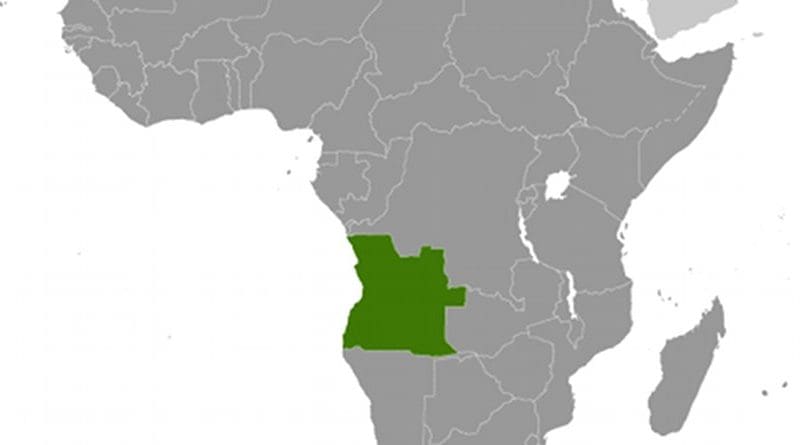Samakuva’s Reelection: Good News For José Eduardo Dos Santos – Analysis
By IPRIS
By Paulo Gorjão*
Between December 3-5, the outskirts of Luanda hosted the XII Ordinary Congress of the National Union for the Total Independence of Angola (known by its Portuguese acronym UNITA). Isaías Samakuva was reelected president of Angola’s largest opposition political party for the fourth time in a row, with 82.8% of the votes. Samakuva was first picked by the party’s delegates in 2003 and has led the party ever since — a 12-year tenure. He is now preparing to run once again for Angola’s presidency in the general elections projected to be held in August 2017. In other words, since the death of Jonas Savimbi, in February 2002, UNITA has had only one leader in times of peace.1
Taking the risk of comparing what is not comparable, it is worth noting that Samakuva’s political resilience in UNITA’s leadership is rather similar to that of José Eduardo dos Santos at the helm of the People’s Movement for the Liberation of Angola (MPLA) Nonetheless, while José Eduardo dos Santos’ longevity is relatively easy to understand, the same cannot be said of Samakuva’s resilience. Essentially, but not exclusively, José Eduardo dos Santos’ longevity lays on the efficient distribution of benefits derived from political power. To a certain extent, the MPLA is the State and the State is the MPLA, with José Eduardo dos Santos being the one who skillfully oversees and controls the entire process.
Lacking benefits to distribute, Samakuva’s political survival in UNITA’s leadership is harder to explain, even when considering that the last 12 years did not run entirely smoothly for him. In March 2012, for instance, a number of important leaders of UNITA, including Abel Chivukuvuku, left the party after their relationship with Samakuva severed and formed a new political force, the Broad Convergence for the Salvation of Angola – Electoral Coalition (CASA-CE).
This major separation was the most serious political blow to UNITA in recent times. Yet, Samakuva managed to survive the negative electoral results during the 2008 parliamentary elections and, more recently, in the August 2012 general elections. To some extent, no matter how paradoxical it may seem, the foundations for his seven political lives may lie on the very irrelevance of UNITA. In fact, UNITA’s rise to power is unforeseeable, as the party is closed over itself and has a limited capacity to lure young officials. Samakuva, who over the years created an elaborate web of loyalties and complicities, takes the most out this. In a way, UNITA is a niche party and will continue to be so in the short and medium term.
Irrespective of the reasons for Samakuva’s political survival, his unequivocal reelection is not good news for UNITA and Angola. Indeed, even when taking into account that Samakuva contested the way the 2012 elections were conducted, there is no cause to believe that UNITA’s electoral results in 2017 will differ considerably from 2008 and 2012. Without renovating itself at the highest political level, UNITA will continue to be unable to appeal to those who are dissatisfied with the MPLA’s firm and seemingly eternal grip on power. That being said, political protests against José Eduardo dos Santos will tend to remain underpinned by an inorganic nature, as shown by the case of the Angolan activist Luaty Beirão.
At this point, it is not yet clear whether José Eduardo dos Santos will decide to run for a new presidential term. In any case, at the very least his decision will necessarily be clarified during the VII MPLA Congress, scheduled for August 2016.
Ironically, it is possible to say, in a figurative sense, that Samakuva’s continuity — and what it represents in terms of lack of alternatives and also UNITA’s failure to renovate itself — is, to a certain extent, a valuable life insurance for José Eduardo dos Santos. Although Angola is currently going through an adverse and difficult economic period, with every political and social implications that ensue, the eventual reedition of the 2012 electoral confrontation in 2017 — between José Eduardo dos Santos, Isaías Samakuva and Abel Chivukuvuku — will not, under normal circumstances, produce significantly different outcomes.
Certainly that MPLA’s perpetuation in power constitutes a problem. However, within the current political context, UNITA and CASA-CE do not yet seem to be an integral part of any political alternative.
About the author:
*Paulo Gorjão, researcher at Portuguese Institute of International Relations and Security (IPRIS)
Source:
This article was published at IPRIS as IPRIS Viewpoints 191 (PDF).
Notes:
1. Samakuva has always had challengers to UNITA’s leadership. In 2003 he defeated Lukamba Gato and Dinho Chingunji; in 2007 beat Abel Chivukuvuku; in 2011 defeated José Pedro Kachiungo. This time, Lukamba Gato, once again, and Abílio Kamalata Numa were the contestants.

